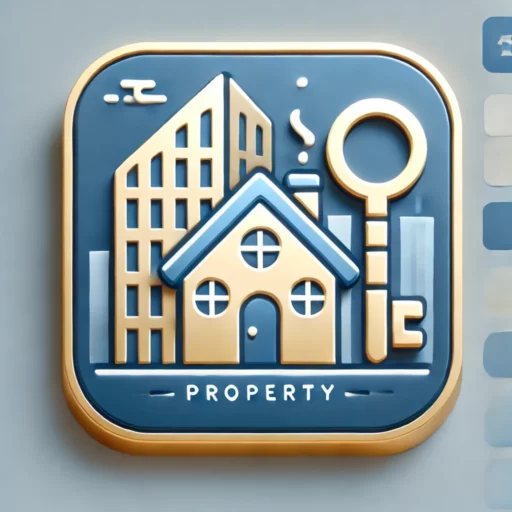Thinking of buying a property? That’s awesome! But before you sign that dotted line and pose with the keys on Instagram, there’s some serious paperwork to check off. Documentation isn’t just some bureaucratic hoop — it’s the backbone of a smooth, stress-free property purchase.
In this article, we’ll break down the 12 must-have documents you’ll need before buying any property — and why they matter more than you think. Let’s dive right in.
Why Documentation Matters in Property Buying
When you’re investing your hard-earned money into real estate, having your documents in order is like having insurance against disaster. Whether you’re a first-time buyer or a seasoned property investor, getting the paperwork wrong can cost you everything — your money, your peace of mind, and even the house itself.
So yeah, it’s kind of a big deal.
1. Sale Deed
Why It’s the Most Crucial Document
Think of the Sale Deed as the ultimate proof that you’re the new legal owner. It’s registered at the sub-registrar’s office and transfers ownership from seller to buyer.
Without this? You technically don’t own squat.
✅ Must include: details of buyer, seller, property description, price, and terms.
➡️ Learn more about legal procedures on QialmaProperty’s Property Buying Guide.
2. Title Deed
Proof of Ownership and Legal Transfer
The Title Deed proves that the seller legally owns the property — and has the right to sell it. Make sure it’s clear and marketable, meaning no disputes or legal claims.
🔍 Pro Tip: Check it through a title search for peace of mind.
3. Mother Deed
Tracing Property History
Want to know the property’s origin story? The Mother Deed traces its ownership history — kind of like a property family tree. Essential if you’re buying a resale property.
👨⚖️ This one’s especially important for investor tips on inherited or older properties.

4. Encumbrance Certificate
Check for Legal Dues or Liabilities
This document tells you if there are any pending loans, mortgages, or legal disputes on the property. You’ll want a clean slate here — trust us.
🛡️ Look for at least 15 years of encumbrance history.
5. Building Plan Approval
Confirm Property Is Legally Constructed
A must if you’re buying a constructed building. The building plan must be approved by the municipal authority to ensure it meets zoning and safety standards.
🏗️ If it’s not approved, you’re buying an illegal structure. Yep — even if it’s beautiful.
6. Occupancy Certificate (OC)
Certifies Completion and Habitability
The OC confirms the construction is complete and follows all rules. Without it, you can’t legally move in — or get utilities.
👉 Miss this, and you may be violating rental laws without even knowing it.
7. Completion Certificate (CC)
Ensures Construction Adheres to Norms
Issued by local authorities, the Completion Certificate certifies that construction meets the approved plan and building codes.
📑 You’ll need this for property registration too!
8. Property Tax Receipts
Clear Dues = Peace of Mind
Make sure the previous owner paid all property taxes up to date. Ask for at least the last 3 years of tax receipts.
💡 This helps avoid future legal or financial liabilities from the local municipal corporation.
9. Khata Certificate and Extract
Essential for Registration & Utilities
These are Bangalore-specific but similar documents exist nationwide. The Khata registers your property in the local municipal records, allowing you to apply for water, electricity, and rental property services.
📝 Without it, you’re just squatting — legally speaking.
10. Allotment Letter
For Properties from Developers or Housing Boards
If you’re buying directly from a builder or housing society, the Allotment Letter confirms the flat/unit is officially assigned to you.
📌 Proves you’re not being duped into buying someone else’s unit!
11. Possession Letter
A Step Before Legal Handover
This document shows the date when the property is handed over to you by the builder. While it’s not proof of ownership, it’s crucial for possession-based claims.
📬 Tip: Pair it with the OC and CC for full legal standing.
12. Loan Statement (If Applicable)
Check Outstanding Loans or Mortgages
If the seller took a home loan, request a loan statement or closure certificate to make sure you’re not inheriting debt.
🏦 This is a critical step in understanding a property’s ROI.
Tips for First-Time Buyers
- Work with a lawyer.
- Always cross-verify with local authorities.
- Don’t skip reading the fine print.
- Bookmark QialmaProperty’s First-Time Buyer Tips.
Common Mistakes to Avoid During Document Verification
- Blindly trusting builders or brokers.
- Not checking for duplicate registrations.
- Ignoring local zoning or environmental rules.
- Skipping legal advice to save a buck (bad idea!).
👎 These mistakes can cost you more than your down payment.
Real Estate in 2025: Document Trends to Watch
Digital documentation, blockchain verification, and e-stamping are transforming the game. Want to stay ahead?
🔗 Follow the latest market trends at QialmaProperty.
Use a Legal Expert — It’s Worth It
It might seem like an added expense, but hiring a property lawyer can save you from a financial nightmare. Especially if you’re new to this or buying high-value property investment deals.
👨⚖️ They’ll walk you through everything — from property buying to property selling.
Final Thoughts
Buying property isn’t just about finding your dream home — it’s about securing your financial future. With the right documents in hand, you’re not just investing in real estate — you’re investing in peace of mind.
So grab this checklist, do your homework, consult experts, and keep QialmaProperty bookmarked for all your real estate tips.
FAQs
1. What’s the most important document when buying a house?
The Sale Deed — it’s the official legal proof of ownership.
2. Can I buy a property without an Occupancy Certificate?
Technically yes, but it’s risky. You won’t get utilities or legal possession.
3. How can I check if a property has a loan on it?
Request the Encumbrance Certificate and ask for the seller’s Loan Statement.
4. Is a Title Deed and Sale Deed the same?
Nope. The Title Deed shows ownership; the Sale Deed shows the transfer of that ownership.
5. Do I need a lawyer to verify property documents?
Absolutely — especially if you’re a first-time buyer.
6. What if a property has unpaid property tax?
You may inherit the liability. Always check Property Tax Receipts.
7. Where can I learn more about real estate in 2025?
Check out the Real Estate 2025 Tag for expert insights and trends.


